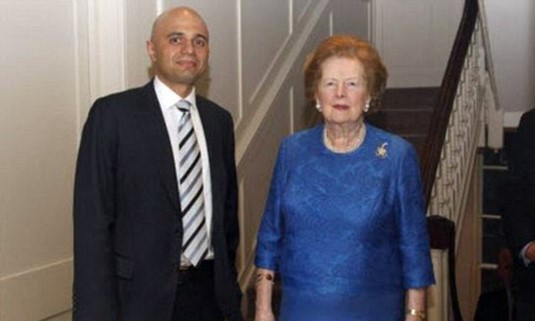
The report makes 63 recommendations, which I'm not going to recount in depth here. Life is precious, after all. But there are standout items of interest. The first few rules in their chapter on tax, spending, and borrowing is an mixed bag, doctrinally speaking. They advocate a cut to the taper rate to Universal Credit, which means workers will lose less benefit for every pound they earn over their work allowance. But this is followed by a refreshingly Thatcherite call to look at efficiency savings in the operation of the state. It also calls for tax reform shifting away from taxing incomes and profits and more of a focus on the progressive taxation of property. The report also suggests a property revaluation for Council Tax, making it a three-year rolling process that keeps up with house prices.
Then comes the Keynesian bit. It advocates exploiting cheap borrowing to prioritise national infrastructure projects predicted to do the most to boost GDP and employment. The national investment bank, a friend to have graced the last three Labour manifestos (four if you count the semi-private green bank that popped into Gordon Brown's ill-fated programme for a second term), surfaces here. As does a new fund designed to specifically invest in strategic sectors of the economy. Lots of money for roads and fibre optics too. There is also an interesting localism agenda here, which includes giving more power - including borrowing powers - and expanding devolved authorities. In case the Thatcherite faithful reading this were to start having palpitations watching their beloved dogmas go up in smoke, there's something here for them too. Javid and co. want to bring back development corporations with the powers of a planning authority, thereby circumventing the democratic input of local authority scrutiny committees. It also, predictably, calls for the relaxation of planning laws ("Review permitted development rights to allow more work to be carried out without going through the planning process", p.38) and allow for redefinitions of the green belt: perpetual Tory holy grails.
On jobs and investment, the two big eye-catchers are a one year cut in VAT, which would encourage consumer spending. And temporary reductions to employers' National Insurance contributions, something Tories have long regarded as a "jobs tax". There's also a moratorium on regulation, including a questionable call to relax regulations on childcare provision. It calls for a temporary "labour market programme" for young people in areas of high unemployment, which sounds suspiciously like compulsory workfare; scrappage schemes for cars and boilers, "tax efficient" vehicles to encourage inward investment and as many post-Brexit trade deals as possible. Rounding it all off are reviews of the Bank of England's remit and, interestingly, abandon inflation targeting (more here).
Thatcherism, but not as we know it? I guess a lot of it depends on how you approach Thatcherism. If you treat it as a set of ideas and assumptions about how economies work, and what government needs to do (or not) to keep the ship on an even keel, then this is not a Thatcherite programme. Sure, there is suspicion of regulation and a nod toward public sector inefficiency, but privatisation and cuts are off the cards, and there isn't an attack on workers' rights in sight. The emphasis on "sound money" and the war against inflation are absent and, for Mont Pelerin's sake, it even makes the case for a more generous social security settlement and a cut to indirect taxation. If this was 2015 other right wing think tanks would have attacked the shebang as a Marxist shopping list. As materialists, however, we do know a bit better.
Readers might recall how Javid fell on his sword rather than subordinate himself to Dominic Cummings before he got the chance to deliver a budget. What eventually did emerge from the briefing case of Rishi Sunak, centrism's newest pin-up, was a set of plans not dissimilar in inspiration or scope to Javid's recommendations. Again, on the surface, they appeared to owe more to Ed Miliband than the departed Margaret. But those, just like these proposals, privilege the preservation of capitalist relations, of ensuring any programme of recovery is able to get through a period of shock - for Sunak, it was a hard Brexit, for Javid it's coming back after coronavirus - without the bourgeois class taking a hit. This is why, despite superficial similarities, Sunak, Javid, and the rest gazed upon Corbynism with horror, because its path to recovery involved tilting the balance of class forces away from the bosses and their state, and toward working people and their families. To coin a phrase.
Javid's plan is cost neutral in terms of ruling class power. Lopping a few pence off VAT and allowing people on Universal Credit to keep more of their benefit are hardly concessions capable of enhancing the collective power of workers, welcome as they are to those feeling the pinch. And this is where there is continuity with Thatcher. Her programme set about recasting class relations, and one that succeeded through physical confrontation with the labour movement and a huge process of centralising the state system under the (relatively) untrammelled authority of the executive. Javid's proposals amount to a programme of dealing with an economic crisis grown out of a biopolitical crisis, but in a period where bourgeois power is dominant. Thatcher wanted to assert the pre-eminence of capital. Javid wishes to preserve it. Looked at this way, it's not so strange then that a bunch of Thatcherites have gone all Keynesian on us. It's a matter of class and class power, and just like their celebrated heroine they'll push whatever policies and initiatives they deem necessary to save it.
Image Credit
No comments:
Post a Comment